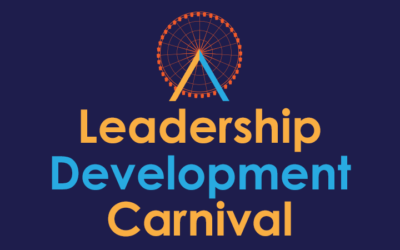Title: Mentoring Is Not Enough
Study: Mentoring: Necessary But Insufficient For Advancement (Nancy M Carter Phd and Christine Silva, Catalyst 2010)
Finding: Mentors help women advance, but they help men more.
InPower Insight: For many reasons, men tend to have a different relationship with their mentors than women do, maybe more like a star athlete has with a coach. As a result, many of their mentors act like sponsors, actively seeking to help them secure new jobs instead of just giving them feedback. In any case, women need to assertively secure both mentors and sponsors to advance their career.
Summary:
Catalyst used data from 4,000 MBA students in Asia, Canada, Europe, and the US and discovered that mentors play a large role in the career advancement of “high-potentials employees”. However, the study found that having a mentor tends to benefit men more than women when it comes to actually getting ahead.
The study found that both genders benefit from securing a mentor before their first job out of business school, however, in their initial job, men still received higher pay, higher ranking job positions, and greater pay increases. Another key finding of the study was that when a high-potential employee had a mentor, particularly at an executive position (i.e. CEO), they received greater promotions and pay. A third key finding was that when mentors and mentees maintain stronger relationships, career advancement occurred more.
One of the most important findings was that mentoring, even with high- power executives, did not close the gender gap and that women continued to fall behind. The study showed that men who had a mentor were 93% more likely to be put in a mid- management or above positions than men who did not have a mentor. Women who had mentors were only 56% more likely. Men with mentors received 9, 260 dollars more than women in the first job after receiving their MBAs. Men with mentors were paid $6,726 more than men without; for women with mentors, they were only paid 661 dollars more than women without. When men entered mentoring programs, 62% received mentors who were CEOs or people with executive positions. Only 52% of women received these types of mentors. In 2008, for each promotion that men received they saw a 21% pay increase; women only received a 2% pay increase. Women without mentors risk receiving even lower salaries than those with mentors.
The study also makes the distinction between a mentor (who provides advice) and a sponsor (who champions you for a promotion.)
“People tend to incorrectly use the words “mentor” and “sponsor” interchangeably. We’ve all had mentors who have offered advice, but sponsors are the people inside our company who have helped us get to senior levels. Sponsors are what you really need to succeed.” —Gordon M. Nixon, President & CEO, RBC
Personal Coaching Tip: Mentors aren’t a guarantee that you’ll get a better job, more pay or more responsibility. They are supposed to give you feedback,insight and resources. We all need mentors and you should be assertive in finding yours, but remember that mentor/mentee relationships are a two-way street. To help you advance your career, you must also have a sponsor (or a mentor who’s willing to be a sponsor also.) Sponsors are willing to tie their reputation to yours, advocate for you behind closed doors and help you actually get the job you seek. Sponsorships are also tw0-way streets, so in seeking support at higher levels, always be clear on what you’re bringing to the table in the relationship and make sure your mentor/sponsor is gaining benefit as well. Not sure how they benefit? Ask them!
Keywords: Mentoring, Mentor, Sponsor, Sponsorship, Career Advancement






